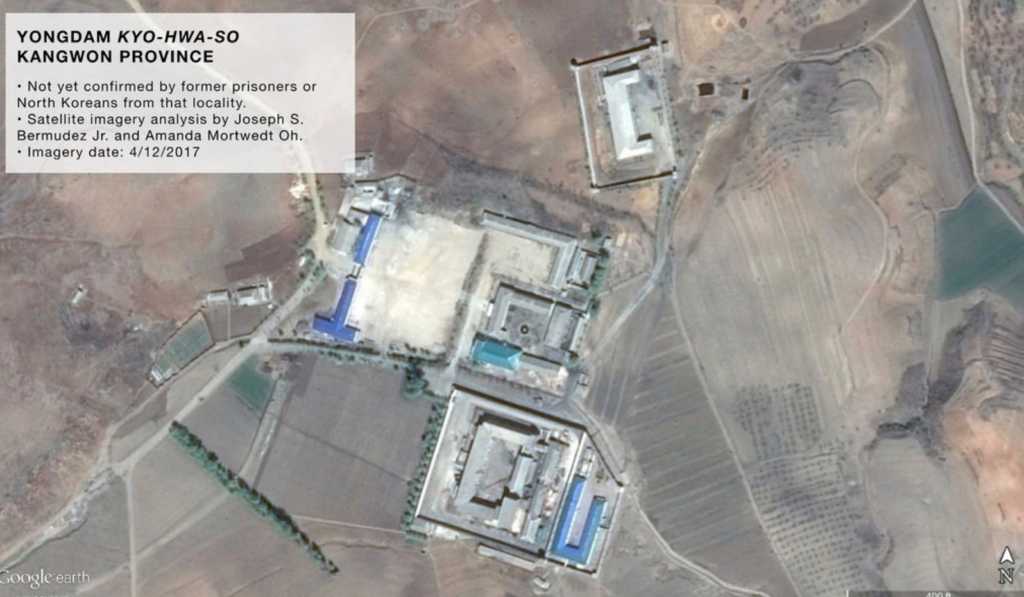The world has long been aware of North Korea’s oppressive detention system through the stories of survivals, but aerial photos further reveal just how widespread the secret network of prisons and “re-education camps” are throughout the country.
A report titled “Parallel Gulags” published Thursday by the Committee for Human Rights in North Korea describes the system as “arbitrary detention and severe repression.”
Pyongyang, the capital of North Korea, has vehemently denied the existence of the penal labor camps, referring to them as “re-education camps,” where inmates are treated with “warm love and consideration.”
#HRNKUS New Publication Released: The Parallel Gulag now available via [https://t.co/fJmjuPVykw] pic.twitter.com/mlIMhc13oK
— HRNK (@committeehrnk) October 26, 2017
However, investigators and humanitarian workers say prisoners are treated horrifically. They endure conditions such as “grossly inadequate food rations,” which leaves them “in a persistent state of hunger and malnutrition.”
“The brutal and arduous labor, grossly inadequate diet, and lack of medicine lead to a dreadfully large number of deaths in detention,” wrote David Hawk, former executive director of Amnesty International USA and a former U.N. human rights official, in the report.

Prisoners are often detained for “crimes that are not really crimes,” former prisoners have told the HRNK. The country’s criminal code calls for severe punishment for unauthorized gatherings and “hostile or superstitious activities” as well as dissent, including anti-state propaganda and demonstrations.
As many as 120,000 people were detained in political prison camps in 2014, and another 70,000 were believed to be held in detention facilities, according to the United Nations Commission of Inquiry, the Huffington Post reported.
Many people are imprisoned without trial, and during interrogation, suspected criminals are “systemically degraded, intimidated and tortured, in an effort to subdue them and to extract a full confession,” according to the U.N.

The U.N. has accused authorities in North Korea of committing crimes against humanity in the prison camps, including murder, enslavement, torture and rape.
Last month, President Donald Trump signed an order expanding economic sanctions against North Korea.
U.S. Secretary of Treasury Steve Mnuchin said in a statement that the government is “especially concerned” with North Korea’s military, which acts as “secret police, punishing all forms of dissent.”
Meanwhile, North Korea’s leader, Kim Jong Un, continues to escalate nuclear threats against the U.S.
“Even as the world is transfixed by the slings and arrows surrounding vital nuclear weapons considerations, it is more important than ever to ensure that the fate of everyday North Koreans trapped in the unyielding gulag systems remains at the forefront of our efforts and the efforts of the international community,” said Greg Scarlatoiu, executive director of HRNK. “There is an undeniable nexus between North Korea’s human rights violations and the security threats it poses.”
(H/T: Huffington Post)


